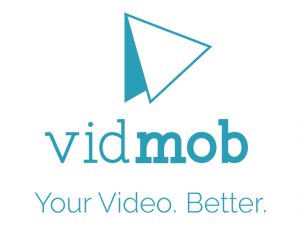For marketers to fully optimize how they draw results from their multichannel content marketing initiatives, a few fundamentals have to be put in place first; Alex Collmer, CEO at VidMob shares a few tips:
_______
Welcome to this MarTech Series chat Alex, tell us about yourself and more about VidMob, what inspired this platform?
Thanks for having me. It’s always a pleasure! VidMob was born really for two reasons. First, it was obvious that as channels fragmented and media types became more complicated (eg. display to video, video to AR, etc.), the creative needs of marketers were going to explode. And second, we believed that the rise of ML-driven technologies like computer vision were going to open up a new field of first-party data, Creative Intelligence, that actually addressed the ‘why’ behind creative performance. We felt like this created a really interesting opportunity for a company that could build a software platform to bring data and creativity together into an integrated whole that both addressed the scale needs of marketers, and also used data in a way that finally allowed marketers to start optimizing the single largest driver of performance, the creative itself.
Marketing Technology News: MarTech Interview with Martin Wilson, Co-founder and Director at Bright
With the deprecation of third party cookies continuing to loom over marketers’ heads, how in your view can marketers look ahead using some innovative methods to adjust to a post cookie environment?
The bottom line is that we’ve all become over-reliant on targeting. In a world where we could count on only showing our ads to perfect customers, then creative really could be an afterthought. And it has been, both for marketers and investors, for a long time. But as targeting now faces a decade of deleveraging, creative simply has to work harder. In a sense, your creative will have to find your audience for you. But the good news is that the juice was already largely squeezed out of media optimization, while creative optimization is both more important and untapped. Into this environment comes new technology enabling Intelligent Creative, and the most forward-thinking marketers are already experiencing performance increases in the hundreds of percents.
To be honest, even though the numbers are very large, I don’t think any of it is at all surprising. Data has played an enormous role in every other area of enterprise activity. Why would we think it’s not going to have a role in creative improvement? That said, this can’t be solved with technology alone. It has to be a mix of human creativity and technology that empowers that creator. The hybrid approach is the unlock, provided the underlying technology platform can actually enable the speed, scale and efficiency necessary to make it possible to translate data-driven insights into new creative in the market throughout a campaign.
In order to boost ad performance given today’s market constraints, what are some areas that marketers/advertisers need to look at in a more focused manner?
I’d say there are a couple of things that we’re seeing. First, to get scale, a lot of marketers are being forced to utilize more channels than they were previously. But this comes with the complexity of understanding how to create high performing content for each channel, because they are all different and have different creative best practices. The good news is that there are a growing number of tools that can help marketers understand how well their content is designed for each platform and format before they even launch it, thus saving a lot of money by avoiding expensive in-market learning. We’re seeing some of the more advanced marketers actually integrating these Brand Governance and creative scoring tools into their digital asset managers, so that they can score all of their content even further upstream.
Marketing Technology News:MarTech Interview with Rachel Meranus, CMO at Transfix
As ad tech-market innovations become more sophisticated, how should marketers/advertisers be using these newer tools/features to enhance their ad experience for end users?
I’d say a key here is making sure that you’re working with partners who truly understand these emergent opportunities. Making a TikTok campaign work is a completely different exercise than doing the same thing on Snap, or Instagram. There are a lot of entities that are really good at one, but are only guessing at others. The key here is making sure that you have data systems fully hooked up across the whole ecosystem through all of the right integrations, and have enough scale going through the system so that the data is both current and accurate. From there, you need highly trained analysts who can interpret this data, moving it from the “red is better than blue” type stuff that machine-only systems generate, to truly strategic insights that apply to a brand. Finally, you need creators who are skilled enough on each platform to be able to know what works as a general rule, but then apply the brand-specific strategic insights that were generated in step 1.
A few predictions you’d like to talk about for the adtech niche and how you see this space evolving in the future?
The big one is I expect we’ll see an acceleration of the re-integration of the two disconnected sides of the industry – media and creative. When the Great Unbundling was happening in the 90’s it made a lot of sense. Data took months to come back, and creative was both really expensive to change, and also very time consuming. But this is all different today. Really valuable creative data comes back within seconds of any campaign launch. And companies with properly integrated creative tech stacks can (and should!) make data-driven improvements to creative mid-campaign, driving ROI’s on that effort that make media optimizations look almost quaint by comparison. As these results become more well-known, I expect this to accelerate. But there will be missteps along the way, as there are a lot of empty promises being made today about claimed integrated creative tech platforms, that are really just business as usual behind the scenes. Asking the right questions is key, as there is no such thing as technology-driven transformation, without technology.
Some last thoughts, takeaways, digital ad tips and best practices before we wrap up!
My tip is actually fairly straightforward – just get started! Creative Intelligence is a brand new type of first-party data asset that grows over time, becoming more valuable with every learning. So the longer an organization waits to start on this journey, the more they are going to fall behind peers who are already adapting their org to open the black box of creative.
Marketing Technology News: MarTech Interview with Jason McClelland, CMO at Algolia
 VidMob is the world’s first platform for Intelligent Creative. Creative accounts for 70% of ad performance, and VidMob unlocks the data behind it. In 2018, VidMob created the first of its kind Artificial Intelligence platform that measures the impact of every creative decision on performance, enabling marketers to optimize their advertising designs themselves, getting the most value for their media dollars. VidMob is the bridge that connects data and creative, integrating data into the creative process and delivering real-time insights so that human creators can optimize ad design throughout the entire life of a campaign.
VidMob is the world’s first platform for Intelligent Creative. Creative accounts for 70% of ad performance, and VidMob unlocks the data behind it. In 2018, VidMob created the first of its kind Artificial Intelligence platform that measures the impact of every creative decision on performance, enabling marketers to optimize their advertising designs themselves, getting the most value for their media dollars. VidMob is the bridge that connects data and creative, integrating data into the creative process and delivering real-time insights so that human creators can optimize ad design throughout the entire life of a campaign.
Alex Collmer is the CEO at VidMob
Missed The Latest Episode of The SalesStar Podcast? Have a quick listen here!
Episode 106: The Need for Predictive Systems in B2B: with Viral Bajaria, CTO and Co-Founder, 6sense
Episode 105: Biggest Sales Enablement Trends and Challenges with Mert Yentur, CEO and Founder at Pitcher AG
Episode 104: CMO Best Practices with Kevin Tate, Chief Marketing Officer at Clearbit











